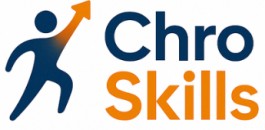
The Evolving Role of the CHRO
Adapting to the Modern Business Landscape
The role of the Chief Human Resources Officer (CHRO) has undergone a significant transformation in recent years. As businesses evolve, so too does the need for HR leaders to step up as strategic partners in the organization. No longer confined to traditional HR functions, CHROs are now expected to drive company-wide initiatives and influence the overall direction of the business.
In this dynamic environment, CHROs must possess a unique blend of skills that go beyond the conventional. Strategic thinking and decision-making are paramount, enabling HR leaders to align human resources with business objectives effectively. This strategic approach is crucial for navigating the complexities of modern organizations and fostering a culture that supports innovation and growth.
Moreover, the ability to manage and develop talent is more critical than ever. As the workforce becomes increasingly diverse and global, CHROs must be adept at identifying and nurturing talent to maintain a competitive edge. This involves not only understanding the current talent landscape but also anticipating future needs and preparing the organization accordingly.
As we explore the evolving role of the CHRO, it's essential to recognize the importance of emotional intelligence in leadership. This skill enables HR leaders to connect with employees on a deeper level, fostering an environment of trust and collaboration. By mastering these skills, CHROs can effectively lead their organizations through change and into the future.
For a deeper dive into the essential skills required for today's CHROs, visit mastering the skills of a chief human resources officer.
Strategic Thinking and Decision Making
Prioritizing Long-Term Strategy Over Short-Term Gains
As the responsibilities of Chief Human Resources Officers (CHROs) continue to evolve, honing strategic thinking and decision-making skills becomes increasingly critical. Being at the helm of the organization’s human resources, CHROs must possess the ability to prioritize long-term strategic goals over short-term gains. This demands an in-depth understanding of the company's overall objectives and aligning HR practices to support these aims effectively. Strategic thinking involves having a visionary mindset and the capacity to foresee the impact of today's decisions on tomorrow's success. CHROs are often the bridge between the executive team and employees, interpreting company culture and strategic plans into actionable HR initiatives that drive growth and sustainability.Data-Driven Decision Making
One cannot overlook the importance of integrating data into decision-making processes. CHROs should leverage HR analytics to guide their strategic choices, providing valuable insights into employee performance, recruitment, and retention strategies. Having a quantitative grasp on HR metrics allows CHROs to make informed decisions that align with the organization's long-term objectives. For example, analyzing workforce trends can help anticipate future skills requirements, enabling proactive educational and developmental programs. This not only assists in succession planning but also positions the organization to adapt quickly to changes in the market or industry. Such data-driven approaches are vital in driving the kind of informed, strategic decisions that ultimately contribute to an organization's competitive advantage.Collaborative Leadership in Strategic Planning
Strategic decisions are seldom made in isolation. Effective CHROs understand the significance of collaboration with other C-suite leaders to shape the company’s strategic direction. This collective decision-making process ensures that diverse perspectives are considered, leading to a more comprehensive strategy that addresses various aspects of the business ecosystem. In order to thrive, CHROs must build robust relationships with other executives, earning trust and fostering a culture of open communication. By playing an active role in strategic discussions, they can ensure that the human capital perspective remains at the forefront of organizational decisions. These strategic thinking and decision-making skills are what enable CHROs to transform HR from a traditional role into that of a strategic partner, fundamentally contributing to the growth and success of the business. As the workplace continues to evolve, so too must the strategic acumen of human resource leaders, ensuring their organizations are positioned for future success.Emotional Intelligence in Leadership
Empathy and Understanding: The Backbone of Leadership
In today's rapidly changing business landscape, the Chief Human Resources Officer (CHRO) must hone the ability to connect with employees on a profound level, ensuring a positive workplace environment. Emotional intelligence (EI) plays a central role in crafting these connections, where empathy and understanding are key components.
Developing emotional intelligence allows CHROs to interpret the nuanced dynamics within an organization. It enables leaders to perceive emotions accurately, understand them, and actively engage with their implications. This might involve recognizing stress levels within a team, acknowledging achievements, or addressing conflicts in a manner that is supportive rather than punitive.
Moreover, emotional intelligence is pivotal when it comes to strategic thinking and decision-making. As highlighted in our detailed exploration of strategic HR leadership, taking decisions that are both data-driven and empathetically informed can lead to more holistic and sustainable outcomes for the organization.
Incorporating emotional intelligence into everyday interactions with employees fosters a culture of trust and openness. It encourages employees to voice their ideas, share their feedback, and align with the company's vision. This aspect of leadership is not just about understanding the emotional dynamics of individual employees but also entails grasping the organization's emotional climate as a whole.
Investing in nurturing emotional intelligence skills drastically improves talent management and development strategies. It aids in creating developmental programs that resonate with employees' personal and professional aspirations, ultimately contributing to the organization's success. As the CHRO navigates through various challenges associated with organizational change, emotional intelligence will act as a guiding compass, steering them through turbulences with poise and empathy.





